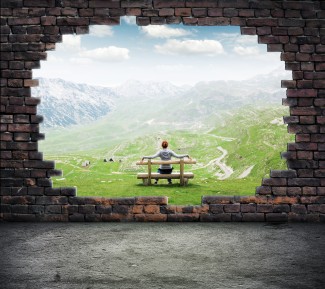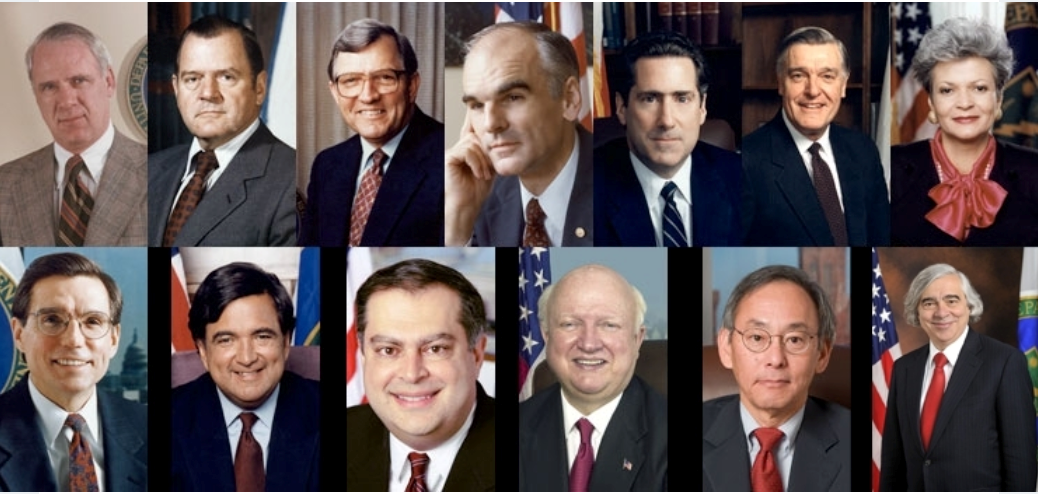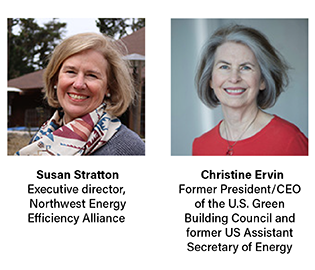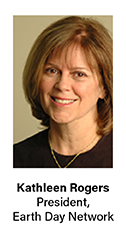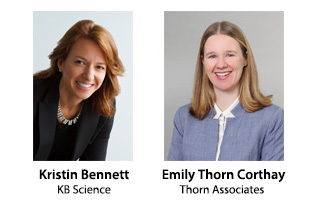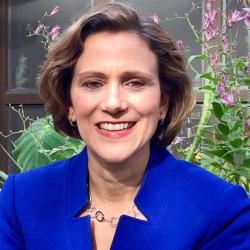Of the 14 people who have led the US Department of Energy since its founding in 1977, only one is a woman: Hazel O’Leary, who served in the early 1990s. At the U.S. Environmental Protection Agency, one-third of confirmed administrators have been women.
These numbers are hardly surprising. The energy and environmental fields, especially the former, have traditionally been dominated by men. In fact, women account for only one-fourth of energy efficiency workers, according to the 2019 U.S. Energy and Employment report.
To explore the experiences of women in this field, ACEEE is hosting its first Women in Energy Efficiency event at our Summer Study Industry next month in Portland, Oregon, with support from the Karen and Neal Elliott Fund. Two speakers will share their stories: Susan Stratton, executive director of the Northwest Energy Efficiency Alliance, and Christine Ervin, former president/CEO of the U.S. Green Building Council and former US Assistant Secretary of Energy.
We asked three other women to tell their stories as well, including the leader of an environmental organization and two Summer Study panel co-chairs. They spoke candidly, sharing both their inspiration and advice.
When Kathleen Rogers became president of the year-round Earth Day Network nearly two decades ago, she says the CEOs of all the major environmental groups were men. (Most of these groups are still led by men.) “It’s not as if they’re not awesome, committed men, it’s just that … sometimes, conversations [with them] can feel foreign,” she says. “Once you reorient them, I’ve found that they’re very responsive.”
“We just have to have the courage to speak up,” Rogers adds. “We do! Because I don’t find [men] resistant, I don’t find them rolling their eyes the way they used to—and trust me, they used to. But I think the barriers remain in the sense that you’ve got to be willing to stick your neck out even if you feel stupid—and I often do, because I’m bringing up a different way of looking at things. [Men and women] can go about things differently, so having that balance is really key.”
Kristin Bennett and Emily Thorn Corthay, who will co-host a Summer Study panel called “Inspirational Future,” also discussed their experiences. Bennett is the owner, president, and chief executive officer of KB Science, a research consulting firm based in Boston and Washington, DC. Corthay, president of Thorn Associates, is one of five certified energy manager (CEM) instructors in Canada.
Below are excerpts of our conversation.
What has been your experience as a woman in a male-dominated field?
Kristin: As mechanical engineer by first degree and geologist by PhD with a specialty in geophysics, crystallography, and texture analysis, I was often the only woman in the room, either in classes, meetings, or conferences. In 1988, as an undergraduate in engineering, I was the only woman with 85 men in my mechanical engineering classes at King's College. As an undergrad, I recall a male student saying to me that women’s brains worked differently than men’s, and women did not think like engineers. I got used to being different, underrepresented, and, well, lonely.
Most in my direct community who know my work treat me with equity, for which I am grateful. On the other hand, others, who may not be clear on my experience and contributions, have judged, discriminated, and tested me twice or three times more than male colleagues.
I run my own company now, in our 11th year, as a woman-owned small business. I love what I do. I love our work. I care about the impact and our contribution to energy efficiency and helping to provide a better, cleaner, emissions-free world. I am proud to be a woman doing it.
Emily: I’ve found that we are sometimes held to a higher standard and have to prove ourselves more than men. Some of my obstacles have included having to choose how to confront (or ignore) sexually explicit material being posted publicly in university and in the workplace, learning after being hired that one of the decision makers said that “girls should not be working in laboratories but rather stay at home,” and being repeatedly mistaken for a waitress or administrative personnel at conferences when I was the instructor or leader.
Opportunities, however, have also arisen—for example, with the increased emphasis on women in leadership roles. I was elected director of the board of the Ontario Society of Professional Engineers, where I think that the membership understands the value of electing a diverse and gender-balanced board of directors.
What made you pursue a career in the energy field?
Emily: After reading a newspaper [article] on fuel cell technology, I immediately fell in love with the technology and spent the next five years in that industry. I then wanted to broaden my horizon to energy efficiency more generally and have grown to be very passionate about saving our planet (and my industrial clients’ money) through energy efficiency and carbon emissions reductions.
Kristin: I was attracted through crystallography to making or modeling new materials for energy-efficiency platforms. I also liked that working in the energy field, I had the opportunity to travel (e.g., New Zealand, Japan, Russia, India) to understand global energy efficiency concerns, tools, and solutions.
How have things changed—or not—since you began your career?
Emily: Since I began my career over 15 years ago, there has been more emphasis on increasing women in engineering as well as women in leadership roles. In addition, a broader emphasis on equity, diversity, and inclusion is now the norm.
Kristin: After 30 years, the number of women in the mechanical engineering workforce remains about 7-9% ... As I have gotten older, I have become more accustomed to the lack of diversity in energy efficiency and feel more at ease in my career. I have found a few female mentors, though one turned out to be competitive instead of supportive. I have many examples still of being the only woman in the room. Today I chair the Strategic Advisory Committee, Energy & Environment S&T for Idaho National Lab, as the only woman on the committee. I have found certain management at the DOE labs less tolerant of sexual/gender harassment, which is promising.
What advice would you give a young woman interested in industrial energy efficiency?
Emily: Industrial energy efficiency is a fast-growing field (in Canada, it’s growing at 8.3% per year, about triple the economy as a whole), so if you are a young woman, a career in this field will open up many exciting opportunities. I also think the process aspect of the industrial field—as opposed to commercial or residential—is complex and fascinating, so you will never be bored and can also improve your economic success as more complex custom industrial processes can command higher salaries/consulting rates. Most importantly, you are helping save humanity from the worst effects of climate change by reducing carbon emissions.
Kristin: Following my postdoc, I had a pivotal conversation with a woman leader and CEO for a successful biomedical research company. She gave me some enlightened advice: “Kristin, every woman in leadership feels lonely. You are not alone. If you want to make a difference in the world, and ‘make the world a better place,’ as you say, go back to what you know. Do what you love to do. Go back to the lab. There will you make a difference in the world, simply by being you. Make a difference by doing what you love.”
I would (and do) warn them, it is not easy in a male-dominated workplace, but it is worth it. Reach out to the Society of Women Engineers, ACEEE, C3E-like networks. Join as many women in science networks as you can. There are many. Document sexual harassment and do not be afraid to report it. Choose people to work with who respect your work, treat you equally, and celebrate your perspective. You will not be alone.
